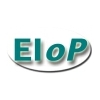New release: Governing the knowledge society: Studying Lisbon as epistemic setting. By Thomas Pfister
14. January 2010
In: Kröger, Sandra (ed.). What we have learnt: Advances, pitfalls and remaining questions in OMC research, European Integration online Papers (EIoP), Special Issue 1, Vol. 13 (2009), Art. 6, http://eiop.or.at/eiop/texte/2009-006a.htm.
Reference
This paper is interested in the role of knowledge as resource, medium and product of governance as well as in ways of studying knowledge and processes of knowledge construction in EU governance. Its particular focus in this context is on the Open Method of Coordination (OMC) and the Lisbon Strategy. Based on a discussion of accounts of policy learning, governmentality and Science and Technology Studies (STS), the paper claims that studying Lisbon could be about much more than the effectiveness and the legitimacy of the OMC. Accordingly, it calls for a two-fold extension of the scope of analysis: First, investigations should feed back into reflections about the broader picture. Here, the political space of Lisbon can be analysed in terms of indirect government under the conditions of a knowledge society. Second, in order to achieve a larger picture the analysis should be extended downwards to the everyday practices within (and beyond) the different OMCs where knowledge is produced and through which the epistemic culture of Lisbon is governed and constituted. While this move away from the meso-level of institutions is mainly motivated by a review of governmentality, STS can provide the necessary theoretical and methodological guidance to put such a comprehensive perspective into empirical practice. (Abstract)
Dr. Thomas Pfister holds a scholarship at the Center of Excellence. His research is on “Methodologie in der pluralen Polity der Wissenschaft – das Beispiel der Europastudien.”
